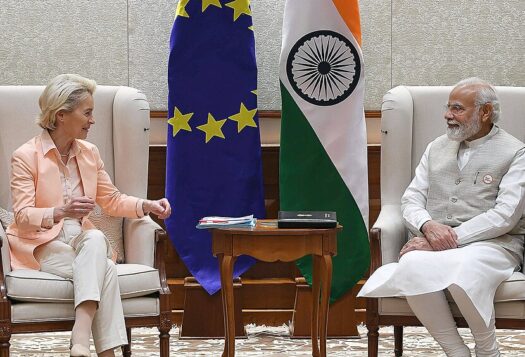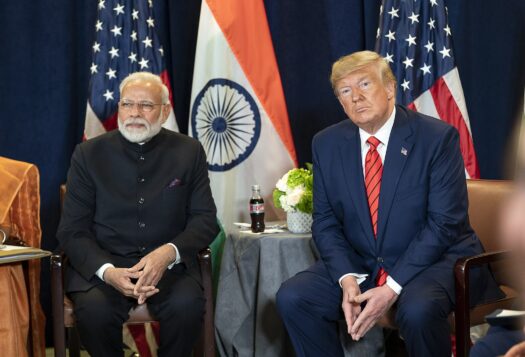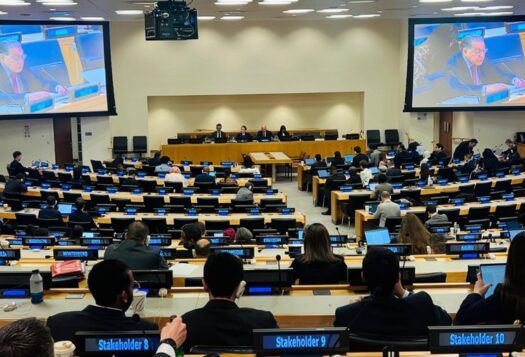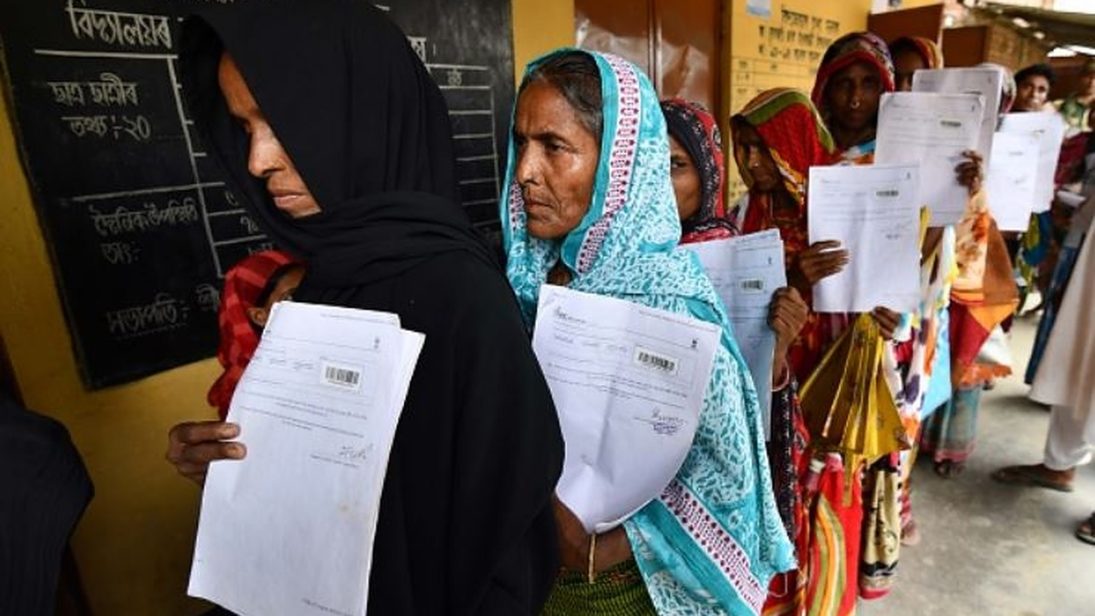
On August 31, 2019, India published the National Register of Citizens (NRC) for the northeastern state of Assam. The document aims to identify “legal” migrants that entered the state before March 25, 1971 and have been living there since. The Supreme Court-monitored process, which began in 2013, ultimately left 1,906,657 individuals off the list with their citizenship hanging in the balance. While the NRC is rooted in a history of local tensions around identity and waves of migration into Assam, it has national and even regional implications. With India’s ruling Bharatiya Janata Party (BJP) demanding an NRC across the country, it is crucial to understand the roots of one of India’s oldest questions of identity and citizenship.
What is the history of the Assam NRC?
The NRC is a continuation of the 1985 Assam Accord, which was signed by the Government of India, the All Assam Students Union (AASU), and the All Assam Gana Sangram Parishad (AAGSP) after years of unrest in the state. Connected to mainland India by a narrow strip of land called the Siliguri Corridor, resource-rich Assam attracted migrants for decades, from both the Indian heartland as well as neighboring Bangladesh (formerly East Pakistan). Anti-migrant sentiment grew significantly, however, after a wave of Bengali Hindu and Muslim refugees fled to the state after the 1971 India-Pakistan war that led to the creation of Bangladesh.
In addition to economic competition and questions over the rights of land ownership, anti-foreigner sentiment was also driven by worries of migrant populations overwhelming indigenous votes at the ballot box. The greatest unrest occurred after the AASU led protests across the state following sharp increase in voters on the electoral roll for the Mangaldoi Lok Sabha seat in 1978. Experts argue that the interference of the Rashtriya Swayamsevak Sangh (RSS) during the unrest changed the movement from being against all outsiders to anti-Bangladeshi Muslims in particular. In the course of the Assam assembly elections, communal violence culminated in the death of more than 2,000 Muslims in Nellie and other villages in Assam in February 1983. The unrest declined after the signing of the Assam accord, which stated that individuals who had entered Assam on or after March 25, 1971 would be deported.
Why is it controversial?
[…] With the NRC’s polarizing potential, the BJP seeks to consolidate the majority vote in its favor, while with the citizenship bill, it has sought to assure non-Muslims that they will not be driven out of the country.
With the rise of the nationalist BJP in recent years, citizenship has become one of the central issues for political mobilization.While the Assam NRC is rooted in local issues, including a history of unrest and insurgency, the BJP’s calls for an NRC across the country are reflective of its efforts to rally its base around redefining citizenship. Another example is the party’s push for reintroduction of the Citizenship Amendment Bill, which proposes providing citizenship to Hindu, Sikh, Buddhist, Jain, Parsi, or Christian migrants from Afghanistan, Pakistan, or Bangladesh. Both efforts have drawn criticism from civil society for targeting India’s Muslim population.
The rhetoric of the BJP on identifying aliens in the country hinges on its projection of a strong state that can uphold India’s security and remove “dangerous illegal immigrants.” BJP President and Home Minister Amit Shah – who has referred to migrants as infiltrators and termites – has argued that the NRC is a constitutional exercise to register citizens and has posited the need for a national NRC as a measure to ensure security.
Analysts argue that the party sees this tactic as a way to reap electoral dividends — with the NRC’s polarizing potential, the BJP seeks to consolidate the majority vote in its favor, while with the citizenship bill, it has sought to assure non-Muslims that they will not be driven out of the country.
Calls to implement an NRC across the country have been met with criticism from several civil society groups, human rights activists, and public intellectuals. On the practical level, critics have argued that carrying out a nation-wide NRC would be impossible given the significant portion of the population that would be unable to provide the documents to prove ancestry. The lack of clarity on what will happen to those excluded from the Assam NRC has also raised considerable doubt over the policy. While the Ministry of External affairs has claimed those not on the Assam NRC “will not be detained,” the state government has also continued to build detention centers across Assam. Human rights groups have voiced strong concern over the impact of the NRC on India’s minorities.
Both the NRC and the citizenship bill have been criticized by opposition leaders and former administrative officers among others for weakening India’s democratic credibility, and creating fear among India’s Muslim population. Critics have also argued that the pairing of the NRC with a citizenship bill undermines India’s secular democracy, noting that the proposed framework of a nation-wide NRC and citizenship bill would frame citizenship in terms of religious identity, going against India’s constitutional ideals.
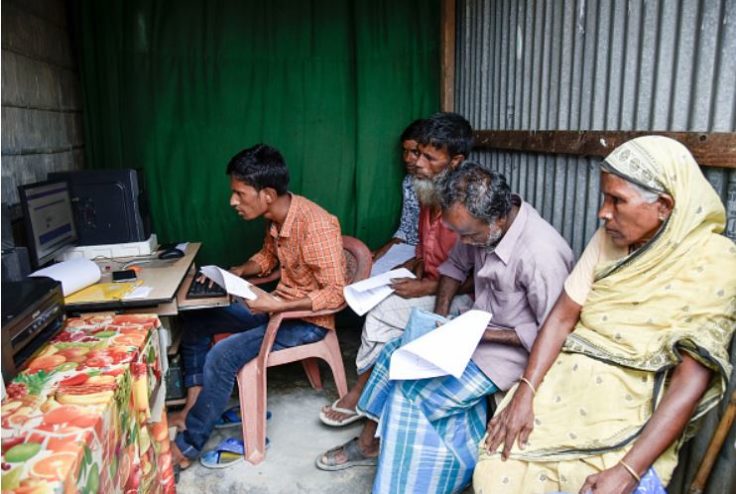
What are its domestic, regional, and international implications?
The most direct impact of the NRC domestically is the increasing alienation and insecurity among India’s Muslim population. Regionally, the Assam NRC exercise has raised fears in Bangladesh — already struggling to host more than one million Rohingya refugees from Myanmar, the possibility of an influx from India has created unease in Dhaka.
The most direct impact of the NRC domestically is the increasing alienation and insecurity among India’s Muslim population. Home Minister Amit Shah’s speeches about the NRC have often emphasized how “infiltrators” will be driven out but not Hindu, Sikh, Jain, and Buddhist refugees, making “Muslims” conspicuous by its absence and raising fears of deportation within the community. For instance, government buildings in the state of West Bengal have been crowded with Muslims, hoping to obtain documents proving citizenship before the NRC is implemented there. Another is the political salience of the NRC – as BJP leaders from West Bengal to Telangana, from Karnataka to the national capital of Delhi demand similar citizenship drives, debates around the NRC are likely to increasingly influence domestic politics. Regionally, the Assam NRC exercise has raised fears in Bangladesh — already struggling to host more than one million Rohingya refugees from Myanmar, the possibility of an influx from India has created unease in Dhaka. There are also concerns that anti-Bangladesh rhetoric may stir up anti-Indian sentiment in Bangladesh. Dhaka’s concerns over the issue led the Indian Ministry of External Affairs to issue a statement saying that exclusion from NRC does not make a person “stateless” or a “foreigner.” For now, Bangladesh Foreign Minister A. K. Abdul Momen has accepted New Delhi’s assurance that the NRC is an “internal matter” of India.
India’s NRC process has also yielded criticism and concern internationally. The United States Commission on International Religious Freedom’s stated that the NRC process was akin to a “religious test” meant to push out Muslims. Filippo Grandi, UN High Commissioner for Refugees, called on the government to refrain from stripping the nationality of individuals as it would be “an enormous blow to global efforts at eradicating statelessness.”
What should observers look out for?
As the NRC process in Assam has shown, Indian society’s historical complexities and heterogeneity will inform any citizenship exercise. If there is a broader NRC, it will be important to look to historical and societal particularities of each state, as this will likely shape the points of contention. Observers should also watch for calls for an NRC in both state-level and national-level electoral campaigns, as well as the potential for further divisiveness and polarization.
The calls for NRC across the country are hinged on BJP’s political and electoral prospects. The party’s performance in future elections will be crucial in determining whether the rhetoric around NRC is limited to electoral mobilization or will it become government policy. Bangladesh’s reactions to both India’s internal rhetoric as well as policy will also be important to watch, and may be a defining political issue between the two countries. Finally, given the external attention on the Assam NRC, observers should watch how calls for a nation-wide NRC are received by human rights groups and the international community, and how this may or may not impact India’s reputation as a value-based democracy.
***
Image 1: Biju Boro AFP via Getty Images
